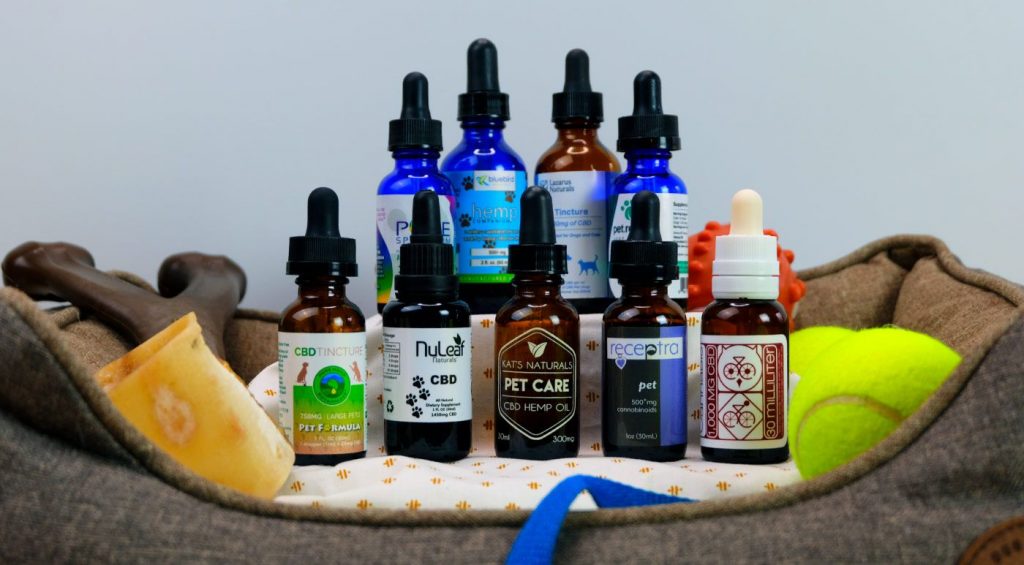CBD is considered safe for human beings, specifically when administered in the right amounts. Although there are insufficient studies to prove that they are good for pets, many CBD enthusiasts still offer them, and you may want to do so to manage pain and inflammation and boost sleep for your pet.
Although it is unclear if CBD is good for pets, the chemical compound from hemp and other cannabis plants seems safe and healthy for human beings, provided it is taken in the right proportions. Still, it is worth noting that CBD studies are limited, and not much has been unveiled about CBD for dogs in any delivery method. Animal studies show that CBD may help animals fight pain and inflammation, including arthritic issues. Human CBD studies also found the cannabinoid great for PTSD, and more pet owners are embracing the cannabinoid and giving its animal versions to their pets. Peer into this article to learn more about CBD for pets.
The Basics of CBD
With more people embracing CBD, they need to have the right information about the cannabinoid. According to Massi et al. (2006) and Bauer et al. (2020), CBD is the non-psychoactive chemical compound in hemp and other cannabis plants. Being non-psychoactive, CBD does not have the ‘high’ effect linked to THC, another abundant chemical substance or cannabinoid. CBD comes in various delivery methods, including vapes, sublinguals, topicals, and edibles. You can find CBD tinctures, gummies, creams, and vapes for humans, while animal versions in tinctures, topicals, and edibles are offered for pets. Whether you want CBD for human beings or pets, you can have it in the following formulations;
Full-spectrum CBD
This formulation features CBD with additional cannabinoids like CBC, CBT, and CBN and includes the psychoactive THC in low amounts. It also comprises terpenes and flavonoids, all of which add to the earthiness of CBD.
Broad-spectrum CBD
This is more like full-spectrum CBD, only that it does not comprise THC. You may want to try broad-spectrum CBD to enjoy CBD oil’s THC-free full entourage effect (VanDolah et al., 2019).
Isolate-based CBD
This form has CBD and no other cannabinoid and is great for CBD novices who want to avoid the earthiness of the additional compounds in CBD.
Is CBD Good for Pets?
Since most pet owners have already embraced CBD and administered it to their pets in various delivery methods, you may want to know whether the cannabinoid is good for pets. CBD is deemed safe and healthy, especially when administered correctly. However, this does not mean that there are no risks associated with the cannabinoid, primarily because CBD studies are limited. CBD has been illegal and under the radar for the longest time, and it is only after the Farm Bill was passed in 2018 that it became federally legal. Still, other states consider it illegal, and with the many restrictions, CBD research is limited. Therefore, while many people may be giving their pets CBD, there is no guarantee that it is good for pets. In fact, according to Zhongming et al. (2019), CBD is not necessary for pets.
Should You Give Your Pet Marijuana or THC Products?
While the ‘high’ effect of THC and marijuana is not preferred for everyone, some cannabis users like it and may introduce THC products to their pets so they may also experience the ‘high’ effects that human beings supposedly ‘enjoy.’ Are marijuana and THC products good for your pet? Zhongming et al. (2019) commented that marijuana and THC products are unnecessary for pets. The same report indicated that many poisoning cases in pets were increasingly being recorded in the USA because dogs accidentally ingest marijuana products. This clearly shows that marijuana and THC products may be unnecessary and risky for your pets. Why, though, do people give pets CBD products?
CBD May Help Pets Relieve Anxiety
Although pets may not necessarily suffer from depression, they are also affected by mental conditions. The conditions they are exposed to while young or old may cause mental problems. For instance, dogs beaten or abandoned may suffer mental issues. Besides, some handicaps also affect pets, making them prone to mental disorders. Can CBD be the answer to such complications? Elms et al. (2019) reported a case where CBD helped improve Post-Traumatic Stress Disorder (PTSD). Currently, there are limited studies on CBD for pets, particularly for stress, but the existing research instills confidence in CBD for pets.
CBD for Inflammation in Animals
Inflammation is one of the many causes of chronic conditions. While it might not cause some conditions, it may trigger or exacerbate the problem. Interestingly, inflammation does not only affect human beings; it is equally a problem in animals. Can CBD help pets with inflammation? Schuelert & McDougall (2011) and Hammell et al. (2016) examined the effects of CBD in rats and reported that the cannabinoid, in its transdermal form, significantly reduced pain and inflammation in rats with compromised limbs. Therefore, topical CBD might be good for inflammation and pain in pets, but more studies are needed for this.
CBD May Boost Your Pet’s Sleep
Some pets become uneasy after a vet’s visit or a long trip, and they may have a problem sleeping. Could you use CBD to boost pets’ sleep? Shannon et al. (2019) reported that CBD seemed to influence the sleep-wake cycle, suggesting that it could be good for sleep. Your pets may also benefit from CBD’s sleep-related properties, but there is insufficient scientific backing.
Conclusion
CBD is deemed safe for human beings when administered in the right proportions. Still, CBD studies on pets are limited, and there is no certainty that the cannabinoid is good for pets. Still, pet owners opt for CBD for pets since early studies show that it might help with pain, sleep issues, and inflammation. Nonetheless, more studies are needed to prove that the cannabinoid may help with the claimed benefits.
References
Bauer, B. A. (2020). What Are The Benefits Of Cbd–And Is It Safe To Use?. In Mayo Clinic.
Elms, L., Shannon, S., Hughes, S., & Lewis, N. (2019). Cannabidiol In the Treatment Of Post-Traumatic Stress Disorder: A Case Series. Journal Of Alternative and Complementary Medicine (New York, N.Y.), 25(4), 392–397.
Hammell, D. C., Zhang, L. P., Ma, F., Abshire, S. M., Mcilwrath, S. L., Stinchcomb, A. L., & Westlund, K. N. (2016). Transdermal Cannabidiol Reduces Inflammation and Pain-Related Behaviors in A Rat Model Of Arthritis. European Journal of Pain (London, England), 20(6), 936–948.
Massi, P., Vaccani, A., Bianchessi, S., Costa, B., Macchi, P., & Parolaro, D. (2006). The Non-Psychoactive Cannabidiol Triggers Caspase Activation and Oxidative Stress in Human Glioma Cells. Cellular And Molecular Life Sciences Cmls, 63(17), 2057-2066.
Shannon, S., Lewis, N., Lee, H., & Hughes, S. (2019). Cannabidiol In Anxiety and Sleep: A Large Case Series. The Permanente Journal, 23, 18–041.
Schuelert, N., & Mcdougall, J. J. (2011). The Abnormal Cannabidiol Analogue O-1602 Reduces Nociception in A Rat Model Of Acute Arthritis Via The Putative Cannabinoid Receptor GPR55. Neuroscience Letters, 500(1), 72–76.
Vandolah, H. J., Bauer, B. A., & Mauck, K. F. (2019, September). Clinicians’ Guide to Cannabidiol And Hemp Oils. In Mayo Clinic Proceedings (Vol. 94, No. 9, Pp. 1840-1851). Elsevier.
Zhongming, Z., Linong, L., Xiaona, Y., Wangqiang, Z., & Wei, L. (2019). Your Pet on Pot, Or Even CBD: Not A Good Thing, A Vet Toxicologist Explains.
Nutrition plays an important role in human life. Eating habits are one of the factors that affect our health. There is often a misconception among people that nutritionists force a very restrictive diet, but that is not true. In fact, I don’t ban any products, but I point out dietary mistakes and help change them by giving tips and new recipes that I’ve tried myself. I advise my patients not to resist change and to be purposeful. Only with willpower and determination can a good result be achieved in any area of life, including changing eating habits. When I don’t work, I love to go climbing. On a Friday evening, you are most likely to find me on my couch, cuddling with my dog and watching some Netflix.
[email protected]
- CBD TINCTURES VS CBD EDIBLES: WHAT’S RIGHT FOR YOU? - January 6, 2023
- CBD AND STRESSFUL TIMES: PANDEMIC (BLUE) FULL MOON OCCURS ON HOLLOWEEN WITH MERCURY IN RETROGRADE – BLOG - January 6, 2023
- Ignite review 2022 - October 21, 2022











